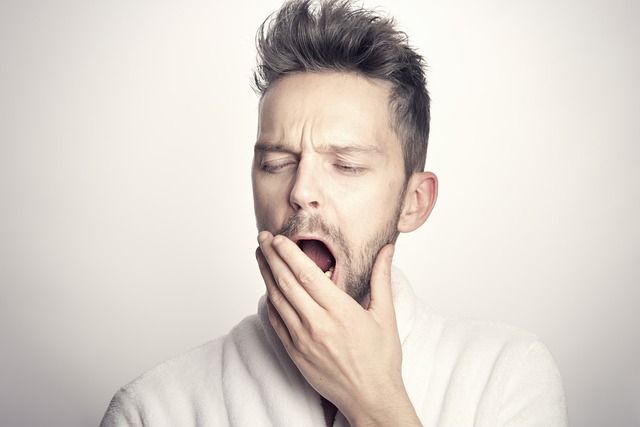Healthy weight loss is linked with various physical & mental benefits.
But sometimes your brain, whose main objective is preserving your body, can see it as a negative thing and put you into ‘starvation mode’ due to its survival instinct.
If a great deal of weight is lost then your body will try to conserve extra calories than normal~ this makes burning calories harder.
You might start feeling lethargic and experience cravings for food like carbohydrates. These can act as a barrier when trying to lose weight making you lose your drive.
In this post, I will go over the theory of starvation mode and how you can avoid it when you’re trying to lose weight.
What Is Starvation Mode?
When you go in an extreme calorie deficit for an extended period, your body will naturally slow down its metabolic rate and reduce energy output, to combat the calorie deficiency.
If there is not enough food in your system it would be inefficient for your body to keep on burning calories like normal. In this case, a natural physiological response will take place to prevent your body from actually starving down the line.
However, reaching the state of starvation mode is rarer than you might think. Skipping a few days of food would not immediately activate the physiological response.
With that being said, forcefully cutting out a lot of calories immediately will cause a hormone imbalance~ that can lead to serious health complications.
What Occurs In A Calorie Deficient?
Calories are energy your body uses for normal bodily functions. When trying to lose weight it is important to eat fewer calories than what you’re burning.
When you consume additional calories than needed, it is stored around the body as fat tissues. If the energy is not used up, the fat tissues keep on piling up. For effective weight loss, you want the opposite where you want your body to use the fat as a source of energy.
No matter what diet plan you go for, they all are designed to achieve a calorie deficit state. For example, intermittent fasting is designed for you to consume fewer calories, and the keto diet is designed to make you fuller for longer, thus also consuming less calories.
This is where the tricky part comes in because your body is used to having a constant source of energy.
Once you start restricting calories, your body can view this as a threat and try its hardest to get back to how things were before. Your body might lower the number of calories burned every day.
This is why diet alone is not enough for weight loss. You should add some form of exercise daily to support your body to use fat as energy.
What Are The Symptoms Of Starvation Mode?
If you are gradually lowering your calories and letting your body adapt, it will stop your body from panicking.
Problems will arise if you start eating little to no food at all continuously for an extended duration~ putting you in starvation mode.
The cause of the symptoms won’t be because of starvation mode though, it will be due to the insufficient nutrients (malnourishment) in your body.
Here are some symptoms you might face:
1. Fatigued

Image by Sam Williams from Pixabay
If you are not consuming enough calories your body won’t have enough energy to keep up with your daily lifestyle.
The brain will focus on using the energy for vital body functions and essentially put you in sleep mode to conserve as many calories as possible.
2. Feeling Cold Frequently
One vital usage for calorie expenditure is keeping body heat at an optimum temperature.
The body temperature is regulated by basal metabolic rate (BMR), which can amount to 50-80 percent of all the energy that your body uses.
Without enough calories, your body will reduce its core temperature, with the aim of saving extra energy.
3. Hair Loss
If you start noticing your hair is falling more than usual, it could be because of malnourishment.
As the hair is mainly made out of keratin which is a protein structure. The necessary amount of proteins need to be consumed for your hair to grow correctly.
If this demand is not met then your body will focus on using the protein for sustaining your body rather than using it towards your hair follicles.
4. Reduce Metabolic Rate
In the process of extremely cutting your calorie intake, your body has no choice but to reduce the overall calorie expenditure.
Your metabolic rate also drops due to the loss of lean muscle mass. The reason is because muscle mass requires more energy than fat.
In the end, your body will try to forcefully adapt to your caloric deficit and cause serious issues along the way. So there are no real benefits that come with crash dieting.
How To Prevent Metabolic Rate From Dropping?
There is no method to completely prevent the lowering of your metabolism when you lose weight.
With that being said there are ways to lessen this effect.
1. Eat High Protein Foods

Photo by Mark DeYoung on Unsplash
Protein is going to be one of your best allies when it comes to weight loss. Protein requires a higher amount of energy to digest compared to carbs and fats. Due to this, your metabolism increases, allowing you to burn more calories throughout the day.
A long term weight loss can make your body break up the proteins from the muscles for energy.
When adequate protein is ingested, the body is less likely to eat away at your muscle, helping you maintain your muscle mass. This prevents your metabolism from slowing down excessively.
Protein also suppresses your appetite~ eliminating your sudden cravings which can be a nightmare when trying to lose weight.
With all these beneficial factors you need to ensure you’re tracking your protein intake.
2. Strength Training
Some form of strength training should be included in your routine. It can be through weights or by just using your body weight.
Protein will support in preserving your muscle mass, however this is not enough in the long term. If your goal is to lose fat and keep them off, you need to condition your body capable of doing so. Building muscle mass will also increase your metabolism, which means you will naturally burn more fat.
In the long term because you are burning extra calories you won’t have to be as restricted with your diet to stay at the current weight.
If you lose fat and gain muscle mass at a similar pace, this can even balance out your metabolism and prevent it from even slowing down.
3. Take It Slow
Nothing good comes from hurrying the weight loss process.
Thinking about building muscle mass quickly might sound tempting, however overtraining can have a negative effect.
If you keep on pushing your body without giving time for rest, it will raise your cortisol level which can slow your metabolism.
On top of that it can cause you to lose muscle mass instead, making it an ineffective way to build muscle. Listen to your body, it will send signals to the brain when it’s time for a break.
The same goes for undereating. If you excessively drop your calories straight away, it will alarm the body. The key is to gradually lower your calories and let your body get adapted to the change.
Is Starvation Mode Real?
A simple answer to this is a yes and a no. The body does indeed have a mechanism for holding onto additional calories than normal if there’s limited fuel available.
However, it is not simple as missing a few meals will lead to starvation mode from activating and destroying your metabolism. Unless you have an eating disorder or your body is in a dire situation for lack of food, you won’t reach the point of starvation mode. People confuse the starvation mode with the body adapting to your weight loss.
If you gradually lower your calorie intake then you are bound to lose some pounds. As your body mass gets smaller, the overall energy (metabolic rate) required by the body decreases as well. This means that the routine you are implementing at that time might not result in caloric deficit anymore. People use this circumstance to describe being in ‘starvation mode’ which is not true.
There are two things you can do at this stage: either lower your calorie intake even more or increase your physical activity to burn extra calories.
Be sure that adding extra workouts should still refrain you from overtraining and reducing calories should not result in severely under-eating.
What Happens In Starvation Mode?
Starving yourself has a domino effect from minor to major consequences. I will explain them in stages:
Stage One:
Glucose is the body’s main source of energy and when we have an excess amount, it is stored in the form of glycogen in the liver.
Due to lack of food, the body will break down the glycogen back to glucose, however this can get depleted after 12 -14 hours.
Stage Two:
After this source is finished the body breaks down your fats into ketone which will be used as the main fuel~ also known as ketosis.
Ketosis can be good for weight loss if done correctly such as with the keto diet where you eat high fats, moderate protein, and low carbohydrates.
But if you reach this stage from just starving yourself and without a plan then this is where things start going downhill.
Stage Three:
Once the body breaks down all the fats that it can, it will start eating away at your muscles.
The protein from the muscles is broken down into amino acids, where the liver converts it into glucose. This process slowly devours your muscle, making you lose your overall lean muscle mass.
Due to insufficient nutrients, you will start feeling the symptoms of malnourishment.
Stage Four:
At this stage, your body will try to conserve energy so your metabolism slows down drastically.
The amount of glucose won’t be enough to be allocated fairly around your body~ important components such as the brain will be the priority.
Lack of energy will be the by-product, making it exceptionally difficult to perform daily tasks.
Stage Five:
Your body will start falling apart. The immune system gets impaired so you are more prone to diseases and infections.
Not just the physical but mental side gets affected too. Depression and anxiety are common threats you might experience.
You won’t be able to move around or think properly. Soon enough all the energy will be focused on just keeping you alive and shutting everything else down.
Myth About Starvation Mode
One of the most common myths is cutting calories puts you in starvation mode and damages your metabolism. You need to restrict your calories in order to lose weight. In doing so your metabolism is not going to suddenly come to a halt and make losing weight impossible.
There’s also a misconception that you are supposedly going to gain extra weight due to the damaged metabolism. An experiment was conducted known as ‘Minnesota starvation‘. A group of men went through a controlled starvation phase where they dropped the weight down to their bones. There was no stoppage of metabolic rate~ they kept on losing weight. Obviously, this is an extreme example that was done with professionals so you should not try and replicate it.
People tend to mix up the starvation mode with the natural adaptation that the body undergoes with weight loss. When your weight drops, the body needs to adjust how much energy it is expanding.
A smaller body mass requires less energy. If the caloric expenditure stayed the same you would be losing weight at a considerably fast rate which can be dangerous.
The slowing of metabolic rate happens due to losing weight and not by constricting your calories.
Conclusion
So is starvation mode real? Yes it is, although it’s not something that people define it as. It won’t magically cause weight gain when you are on caloric deficit.
The slowing of metabolism is our biological mechanism kicking in to adapt to the new environment of fewer calories. This process can seem like a nuisance~ that makes losing weight harder. Despite that, in the past, it was required for survival because food was not readily available like nowadays.
Everyone’s body is different so you need to find a manageable plan that works together with your body and not against it.

Hey, my name is kevin and I am all about spreading positive information about living a healthy life. Leading a healthy life does not need to be complicated, there are plenty of easy methods that fit everyone. I share health & fitness topics over on my website raikevin.com~ feel free to check them out.

